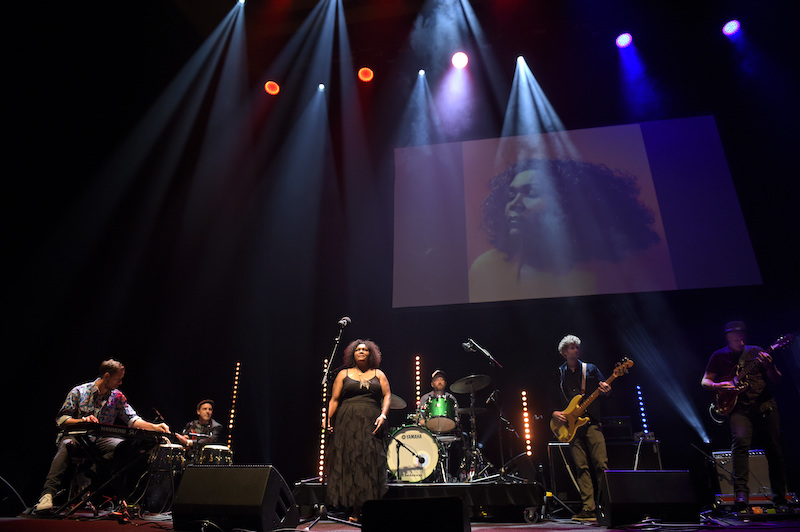How Music Victoria Plans to Become a ‘Global Force’

Music Victoria has released its roadmap to global domination.
Investment offsets and incentives, an annual conference and the delivery of high-need training courses are among the priorities outlined in Music Victoria’s new White Paper, Building the Victorian Music Sector as a Global Music Powerhouse.
The state has long marketed itself as the home of live music, with strong links between the music industry and the government.
“The Victorian live music sector contributes over $1.7 billion per year in GDP, creates over 116,000 jobs and returns $3 for every $1 invested,” Music Victoria CEO Simone Schinkel said.
But, Music Victoria warns, dark undercurrents – especially in the wake of COVID – have to be addressed if the industry doesn’t squander its competitive edge and lose more talent to other sectors.
For example, only 47% of venues licensed for live music in 2019 have renewed their licenses.
One in 4 gigs are unpaid, only 15% felt safe at work, job insecurity is high, bullying is rife, and the level of inclusion and diversity embarrassing.
These are the 12 points of priority:
1. Establish wider investment schemes
These would be offsets and incentives of the kind that the film and TV sectors have been enjoying for years to attract investment.
These would be complemented with more use of Victorian music, through quotas on streaming playlists or in screen and games projects.
“Targeted funding could help subsidise regional and outer metropolitan venues to program original local music, assisting ongoing artist development,” the White Paper suggests.
Peak bodies, industry and local councils could be helped to nurture all-ages live programs to develop and engage young audiences and acts.
2. Set up more insurance schemes
These would provide affordable disruption and cancellation cover and public liability insurance.
It could build off the success of the Victorian Managed Insurance Authority in 2021/22 which insured $230 million of events against covid-caused cancels and reduced capacities, or learn from U.K.’s Live Events Reinsurance Scheme.
3. Review planning & liquor laws
This would give local governments flexibility to define sound levels, support night time economies, protect creative spaces and stop talent from being pushed out of inner city areas.
4. Set minimum fees & diversity benchmarks
These would be embedded in grants from various levels of governments, which will also take a leadership role in ensuring fairer rates of pay and contractor opps.
5. Adopt recommendations of National Industry Music Review
The White Paper expands: “As a first step, the Victorian Government’s Respectful And Mentally Healthy Working Group could establish much needed ‘best practices’ for governance, workplace health and safety; the inclusion of First Peoples, LGBTIQ+ Victorians, people with disability, and people from culturally and linguistically diverse (CALD) backgrounds.”
A roundtable could establish framework and to provide guidance to help combat, report and address sexual harassment and discrimination.
6. Build on dedicated mental health services
This would include in-house clinicians in peak bodies for closer relationships with employees and those who’ve never accessed mental health support before to cope with irregular finances, interlinking their identities and art.
7. Resource future-focused industry up-skilling
These include opportunities for capacity building, learning to use technology “to increase discoverability, grow market share, and monetise creative content”, formal accreditation and the delivery of high-need training courses and professional development programs.
8. Build united networks & partnerships
The music industry is made up of small sectors which seldom work as a unified front.
“With modest investment”, it is possible to bring together skills and resources in the biz to create opportunities, “coordinate touring, share risk, nurture ideas, build capacity and develop stronger pipelines for content and talent.”
9. Invest in music infrastructure
Gaps in professional and tech capabilities of venues limit growth of regional shows and touring.
An alliance between the industry and levels of government could result in an interactive online map to make tour planning easier, and specific funding to upgrade venues and equipment.
10. Increase Victoria’s profile in export markets
Victorian acts make their presence felt, whether it’s five of the six Aussie acts at Glastonbury 2022 being from this state and making up 27% of the acts showcasing at BIGSOUND 2022.
The Victorian and Federal Governments could provide strategic support and investment to help build the global profile of acts and help emerging ones regain the momentum of releasing new music hit by lockdowns.
11. Launch annual conference and showcase
This would continue debate on urgent issues, open cross-sector doors and leverage new markets.
Melbourne held the first Music Cities Convention in 2018 with 350 experts from around the world on how cities could better accommodate music.
It was not only a successful exchange of ideas but reaffirmed it as global music city.
12. Increase research
The music sector must build up its research and understanding of protecting copyright, marketing new content, consumer behaviour, and getting the latest information and statistics to better develop campaigns and get the ‘big picture’.
“Our proposed key actions are extremely achievable and will cement Victoria as a global music leader. The potential outcomes will continue to benefit all Victorians and music lovers across the globe,” Schinkel sums up.
Download the full report here.






























